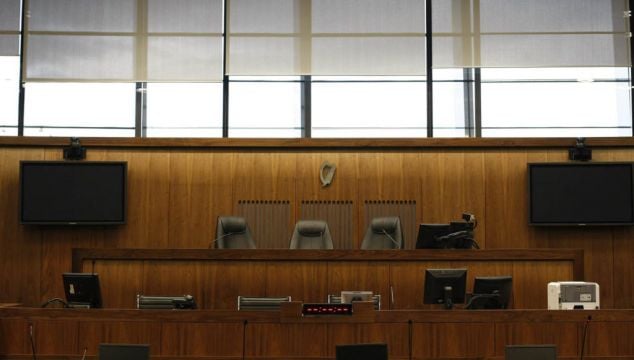DNA evidence found on a mask and runner inside a getaway car is enough to convict a man for the murder of Michael Barr at the Sunset House pub six years ago, a barrister has told the Special Criminal Court.
Dominic McGinn SC told the three-judge, non-jury court that there is no reasonable explanation consistent with innocence for the DNA evidence linking Christopher Slator to the car counsel said was used by three men involved in the "carefully planned" murder.
Mr McGinn said the court can also rely on separate evidence that the prosecution alleges showed Mr Slator and an accomplice booked a flight to Bangkok one day after the shooting.
The flight was due to leave that afternoon and counsel said Mr Slator and his alleged accomplice had no checked luggage or hand luggage despite booking the long-haul trip with a return date almost one month later.
Defence counsel Michael Bowman SC will deliver his closing speech to the court tomorrow (THU).
The court has previously heard that on the night of April 25, 2016, father-of-five Mr Barr was socialising at the pub, where he was a manager, and was shot seven times - five times in the head - after two armed males burst in wearing what have been described as 'Freddy Krueger', or Halloween masks.
Christopher Slator (37) of Carnlough Road, Cabra, Dublin 7, has pleaded not guilty to the murder of Mr Barr at the Sunset House pub on Summerhill Parade in Dublin 1 on April 25th, 2016. He is the third man to go on trial at the non-jury in relation to the murder.
Mr McGinn told the court that the injuries sustained by Mr Barr prove beyond any doubt that the killing was murder. He said witness testimony and CCTV evidence further prove that an Audi that was set alight on Walsh Road in Dublin shortly after the murder was the same car used by the two gunmen and a third accomplice to flee the scene.
Pre-planned operation
He said the same car was also traced back to a premises on the North Circular Road which, when searched by gardai, contained firearms and other clothing and equipment consistent with a connection to "serious criminality, which indicates a carefully organised, pre-planned operation".
Emergency services arrived at the scene of the burning Audi before the fire had fully taken hold, and they prevented it from being destroyed. Mr McGinn said four firearms, masks, headgear, shoes and boiler suits were found in the rear seat. Three of the guns were loaded and ready for use.
Ballistics proved that two of the firearms found in the car were used by Mr Barr's murderers and CCTV, counsel said, showed that the three people in the car took off their clothes and headgear and discarded them into the car before trying to set it on fire. One of the men, he said, appeared to have been barefoot at one point.
DNA profiles were generated from samples taken from the three masks and one of those matched Mr Slator's DNA, counsel said.
His DNA was also linked to the tongue of a runner in the back seat. Mr McGinn said the forensic scientist who took those samples told the trial that he swabbed areas where he would expect to find DNA belonging to the wearer rather than DNA that might be indirectly transferred from someone else.
Mr McGinn said the court had heard no evidence consistent with innocence to explain why profiles matching Mr Slator would be found on those items.
He added: "There are theoretical possibilities, but there is no reasonable explanation based on the evidence. Mr Slator was wearing the mask and runners, was in that car and is connected with the murder and without any other evidence we say that is sufficient to convict him of murder."
He said the evidence suggesting Mr Slator left for Bangkok the following day corroborates the DNA evidence.







